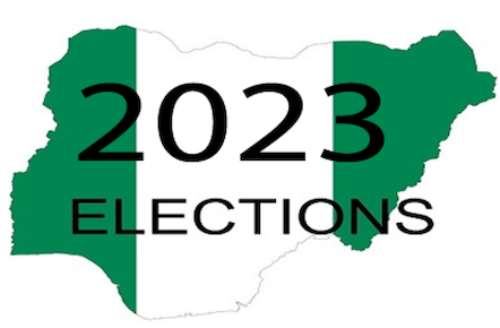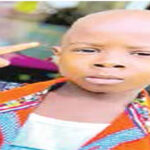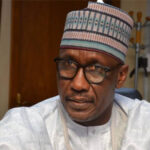
Analysis of data obtained from the Independent National Electoral Commission by our correspondents in Abuja has revealed that a total of 1,524 women will be contesting during the 2023 general elections.
The positions include presidency (president/vice-president); Governorship/ deputy governorship; Senate; House of Representatives and states Houses of Assembly.
The figures were obtained from the list of candidates for the elections as released by INEC.
Participation of Nigerian women in politics has been low over the years.
To increase participation of women in politics, the Federal High Court in Abuja ordered the government to comply with the 35 per cent affirmative action for women.
Earlier, lawmakers in the National Assembly had kicked against a bill titled, ‘An Act to Alter the Provisions of the Constitution of the Federal Republic of Nigeria, 1999 to Provide for Special Seat for Women in the National and State Houses of Assembly; and for Related Matters.”
The bill failed after 208 out of 290 lawmakers voted against it in March.
Since then, various women groups occupied the gate of the National Assembly in protest against the rejection of the bill.
They demanded that the federal lawmakers take another look at the requests for 111 seats for women, citizenship, 35 per cent representation in party leadership, more appointive positions in government, and vote in favour of the amendments.
After days of incessant protests, the leadership of the House of Representatives promised to revisit the bill. In response, the women agreed to suspend their protest for a week.
In the data released by INEC, it was observed that out of the 18 political parties in the country, only the Allied People’s Movement fielded a female presidential candidate by name Ojei Princess Chichi.
Further analysis revealed that out of the 1,101 candidates vying for 109 senatorial seats, 92 are women, representing 8.35 per cent, while 288 women are contesting for House of Representatives seats out of the total 3,122 candidates.
Further state-by-state analysis shows that of the 36 states of Nigeria and the Federal Capital Territory, five states did not field any woman as a candidate for the Senate while one state did not field any woman as a candidate for the House of Representatives.
The states lacking in this regard are Kano, Sokoto, Taraba, Yobe and Zamfara for Senate; and Jigawa for the House of Representatives.
At the state level, it was observed that only 124 females will be running as governorship and deputy governorship candidates out of the 837 candidates listed for the two positions.
For the state Houses of Assembly, the INEC noted that out of the 10,231 candidates only 1,019 are women.
Speaking in an interview with one of our correspondents, the Convener, Women in Politics, Ebere Ifendu, said, “It is a huge embarrassment, the government is not being sensitive to issues concerning women. Recall that Nigerian women got a court judgement and this government is in court again appealing the judgement and yet they are asking women to vote for them.
“They are not showing commitment to the cause of women for inclusion. It is sad and, of course, women will get discouraged especially with violence against them. Just recently, a woman leader was killed in Kaduna; last election, a woman was killed in Gombe and this is not election time yet; just the process and women are already being killed. Thinking about it makes one scared. But we can’t stop, we will keep demanding our right.”
Similarly, a women rights activist, Oluwadara Bunmi, told Sunday PUNCH that Nigerian politics was not gender-friendly.
“Nigerian politics isn’t gender-friendly. Women are not treated as equal or let me just say whole individuals who have minds of their own. The few women who decide to run for political positions are often intimidated. We saw what happened with a certain senatorial candidate in Ebonyi State. However, we will not rest on our laurels; we will continue to push forward and try our best so as to encourage the next set of female politicians coming behind.”





